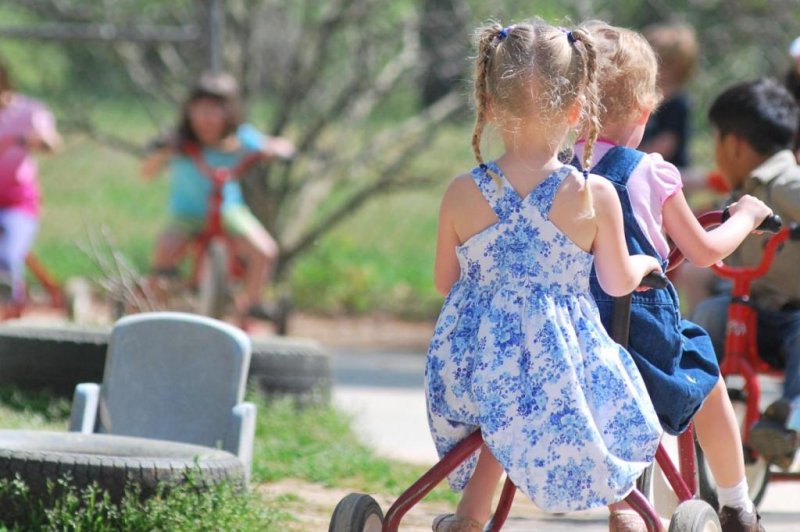Parents not only reported sustained improvements for their children's ADHD behaviors, but also for their social skills and interactions with peers. Photo courtesy UNC's Frank Porter Graham Child Development Institute
Oct. 3 (UPI) -- A recent study found that a program to improve parenting skills can improve symptoms of Attention Deficit/Hyperactivity Disorder in children.
Researchers at the University of North Carolina at Chapel Hill found that the Incredible Years Basic Parent Program was effective at improving ADHD symptoms in children age 3-8 years old.
The Incredible Years Basic Parent Program is designed for parents of high-risk children and those with behavior problems, which focuses on helping parents strengthen relationships with their children through praise and incentives, setting limits, addressing misbehavior and establishing ground rules.
"Prior research already has shown that this program improves behavior difficulties in young children," Desiree W. Murray, Frank Porter Graham Child Development Institute's associate director of research, said in a news release. "This review provides new evidence specifically about its effectiveness for ADHD symptoms."
The study, published today in the Journal of Emotional and Behavioral Disorders, screened 258 studies, narrowing them down to 11 studies that met the criteria of methodology.
Researchers found that the Incredible Years Basic Parent Program was effective in improving ADHD behaviors in young children.
"ADHD in preschoolers can bring conflict with family members, and it carries elevated risk of physical injuries and suspension or expulsion from child care settings," Murray said. "Negative trajectories over time can include the development of other psychiatric disorders and difficulties with social adjustment."
A key component to the program is coaching young children to develop persistence and social, academic and emotional skills.
"We can help to prevent the wide array of negative outcomes that are associated with ADHD," Murray said. "We believe the most effective intervention approaches may be those that target preschoolers with symptoms of ADHD but who have not yet met the full criteria for diagnosis with ADHD."















